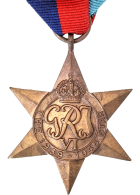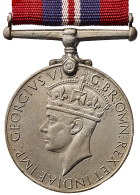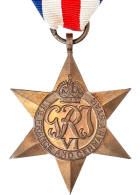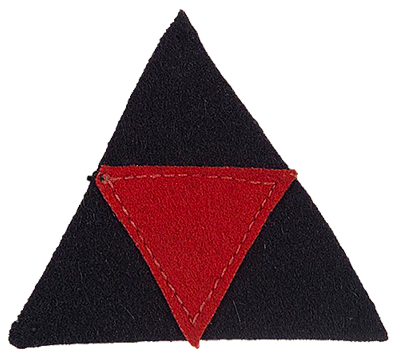At the time of his attestation, Donald Blackett was living with his parents in Gosforth, Newcastle-on-Tyne. He was working as an Agent at the Prudential at Blaydon. He was called up in 1940 and joined the Royal Army Medical Corps on 15 March 1940 and was posted to B Company, No. 2 Depot , RAMC - a Training School which had been set up at Newbattle Abbey College, Dalkeith, Midlothian. He was 5ft 6 ¾ inches tall, had a weight of just over 8 stone and had a chest size of 33 inches - a puny individual!
After basic training, he was posted to 9 Field Ambulance, then at Wells in Somerset, arriving 10 June 1940. At this time in the war, the whole of the southern counties of England were on a war footing and there were military units everywhere.
Four months later, he was graded as a Nursing Orderly and posted to Bampton in Oxfordshire. He was later billeted in the Bridge House Hotel, Beaminster, Dorset, and in March 1941 was advanced to Clerk Group C Class 2, in the rank of Private.
He must have started to get medical problems soon after this as he was admitted to Camp Reception Station, Bridport (CRS is Army slang for Medical Centre) on 12 September 1941. His stay was a short one and he was discharged 6 days later. By January 1942 he had moved to Hertfordshire where he was admitted to No. 91 General Hospital at Hatfield House, Hatfield, for 3 days at the end of the month. In June 1942, he was granted 9 days LWRA (Leave with Ration Allowance) whilst stationed at Chartridge, Buckinghamshire. Later, in July, he was back in the medical centre (CRS) but this time with the Field Ambulance, discharged from there 30 July 1942.
In September of that year, he was billeted in the Gowan Hotel, Southbourne, Bournemouth for a short time on a training course, returning to his unit (9th Field Ambulance RAMC) at the end of September. “The term Field Ambulance” dates from the Boer War and actually started off life as an Ambulance station in the field, treating wounded soldiers - a bit like 4077 Mobile Army Surgical Hospital (MASH)”.
D-Day
The next major thing in Donald’s short Army career happened on 4th June 1944 when the 9th Field Ambulance embarked on the ships to take part in D-Day. The 9th Field Ambulance became part of 3 Infantry Division, a massive organisation which included units such as 1st Battalion Kings Own Scottish Borderers, as well as Royal Artillery, Royal Engineers, Royal Corps of Signals etc. Almost an Army in its own right.
The 3rd Infantry Battalion became bogged down in the Battle for Caen in Normandy, which lasted from 7th June until mid- August 1944, and it was during the intense fighting here that he was subjected to some unrecorded incident which lead to him being evacuated back to the UK fairly quickly. Did he see something so horrific it turned his mind, or was he shelled - we will never know. I believe he was casevacced home suffering from what would now be diagnosed as PTSD Post Traumatic Stress Disorder or “shell shock” as it was known then.
On the 30th June 1944, he was admitted to 20 Field Dressing Station (temporary hospital) at Douvres some 5 miles inland from Sword Beach. He was evacuated back to the UK on 5th July 1944, his fighting war effectively over after just 24 days in Europe. His records show that he became part of F Company 1 Depot RAMC at Crookham in Hampshire and admitted to an Emergency Medical Services Hospital in the area.
On 8th August 1944, he was posted to 46 Reinforcement Holding Unit and 18 days later, admitted to Northfield Hospital, Birmingham – a Psychiatric hospital. After a couple of other minor postings within the RAMC, he finally ended up at Winterton Emergency Medical Services Hospital at Sedgefield, County Durham, again a Psychiatric hospital. I suspect he had been moved here as it was closer to his family on Tyneside and probably, the Army felt there was nothing more they could do for him.
Marriage
The photograph on the right of him on the 2nd June 1945 when he married Sarah Winifred Henderson at Ovingham. It now makes sense that he has no insignia on his uniform as he was still in Winterton Hospital. The face in the background is his brother Robert A Blackett who had also served in the Army during WW2. Anecdotal evidence suggests that he too had psychiatric problems after Army service and it is feasible they were both in the same hospital at the same time.
More questions
The next bits of information on his timeline raise more questions than they answer. Having been admitted to Winterton Emergency Hospital on 27 April 1944, it appears he was still in there until at least March 1946, almost 2 years in the hospital and after the date of his marriage.
There is a Notification of Impending release, dated 20 March 1946, which shows his conduct as Exemplary. It goes on to state “This soldier is a conscientious, willing and reliable clerk, intelligent and has given every satisfaction. He is trustworthy, sober, cheerful and can be confidently recommended to give loyal service in civilian occupation.” He was released to Class Z (T) of the Army Reserve on 7th June 1946, his short Army career over. The T in brackets indicates Territorial Army, the TA.








